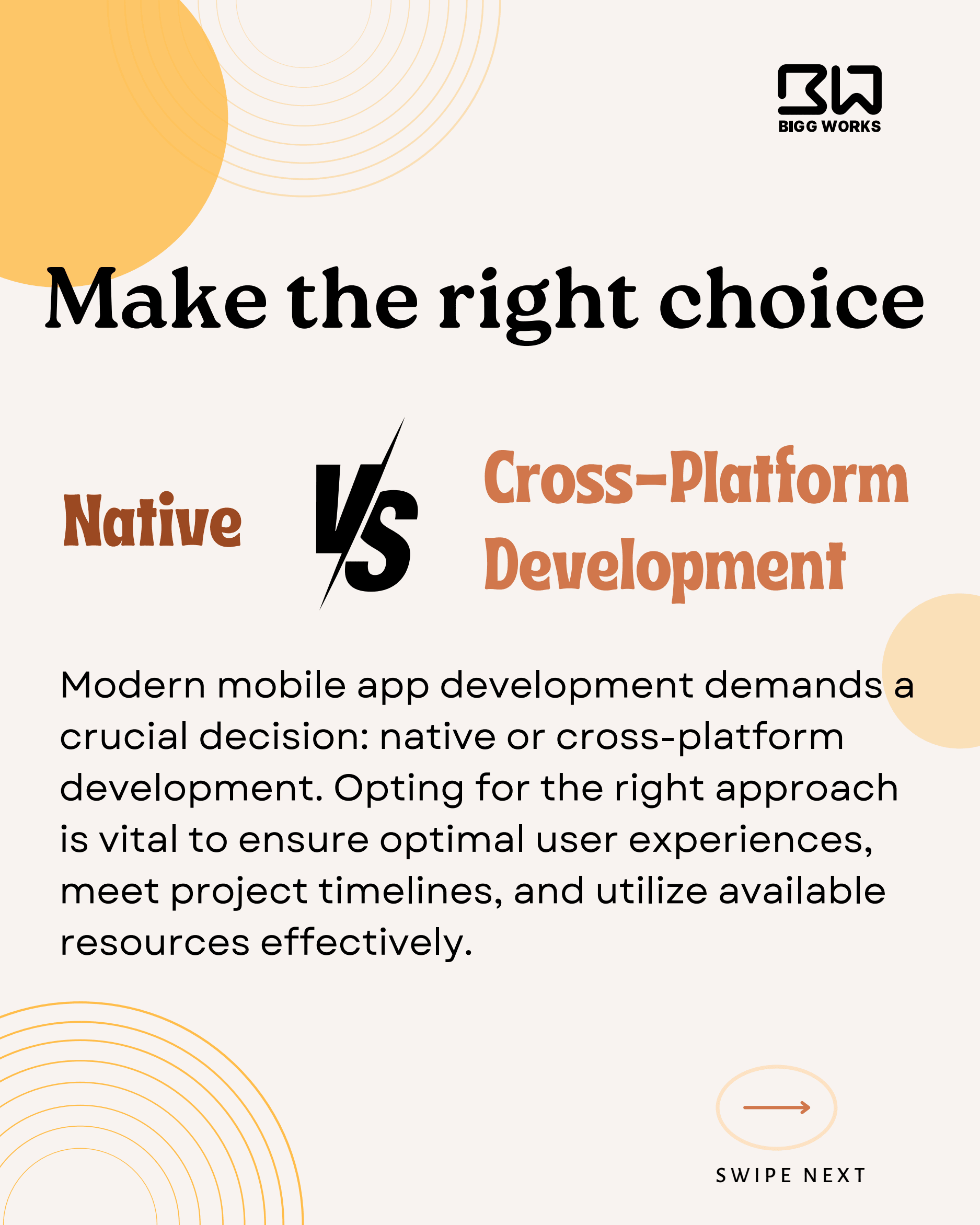Native vs. Cross-Platform Development: Choosing Wisely

Modern mobile app development demands a crucial decision: native or cross-platform development. Opting for the right approach is vital to ensure optimal user experiences, meet project timelines, and utilize available resources effectively.
Native development tailors apps to specific platforms like iOS or Android. By utilizing platform-specific languages, tools, and APIs, these apps seamlessly align with platform design and capabilities.
Performance:Leverages platform features for optimal performance.
User Experience:Consistent, intuitive design following platform guidelines.
Feature Access:Integrates the latest OS features for innovation.
Security:Utilizes built-in security measures for protection.
Time:Separate codebases can extend development timelines.
Resource Intensive:Requires distinct teams for iOS and Android.
Platform Expertise:Developers need specialized skills for each platform.
Code Reusability:Saves time by deploying code across platforms.
Efficiency:Accelerates development cycles with unified updates.
Consistent UI:Tools ensure platform-consistent UI components.
Unified Team:
Performance Variation:May not achieve native app performance.
Design Limitations:Some design elements may be challenging to replicate.
Feature Limitation:Platform-specific features may not be accessible.
App Complexity:Native suits intricate UI/UX requirements.
Development Time:Cross-platform aids rapid launches.
Budget:Native requires higher costs due to separate teams.
Performance:Native excels in performance-critical scenarios.
Maintenance:Long-term updates demand resources for native codebases.
Target Audience:User preferences vary between iOS and Android
Cross-platform development empowers developers to write code once and deploy across various platforms. Frameworks like React Native, Flutter, and Xamarin unify codebases that compile into native components.
In conclusion, the choice between native and cross-platform development is pivotal. Native thrives in performance and experience, while cross-platform maximizes code reuse and efficiency. Make a thoughtful choice, aligning with your app's vision and ensuring superior user experiences.
#MobileAppDevelopment #AppDevelopment #NativeApps #CrossPlatformApps #iOSApps #AndroidApps #PWAs #ReactNative #Flutter #Xamarin #MobileTech #CodeEfficiency #UserExperience #AppSolutions #TechInnovation #UIUXDesign #DigitalExperiences #HybridApps #MobileDev #AppProgramming